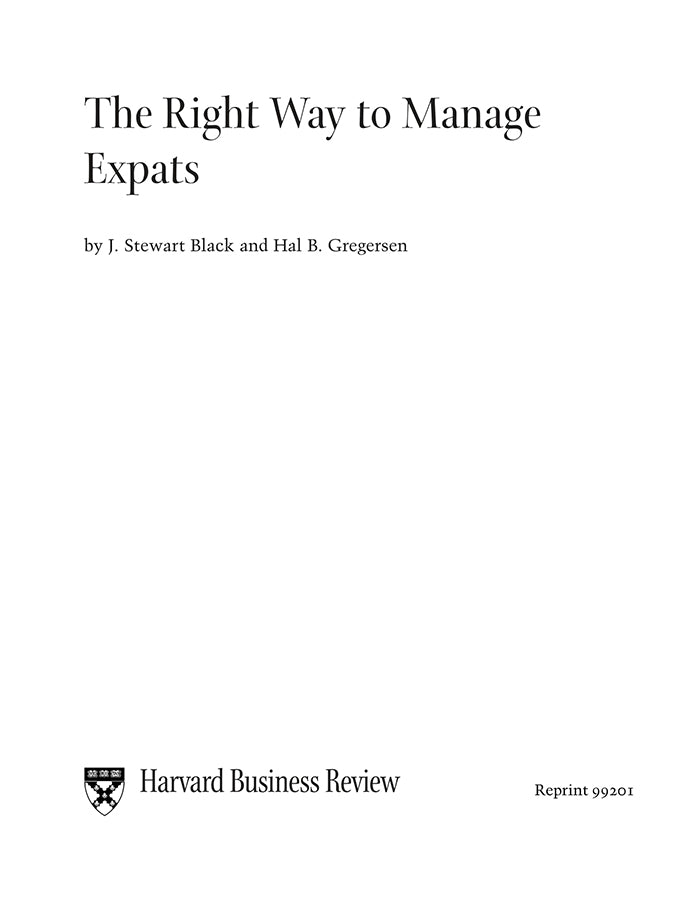Right Way to Manage Expats
受取状況を読み込めませんでした
In the global economy, having a workforce that is fluent in the ways of the world is a competitive necessity. That's why more and more companies are sending more and more professionals abroad. But international assignments don't come cheap: on average, expatriates cost a company two to three times what they would cost in equivalent positions back home. Most companies, however, get anemic returns on their expat investments. The authors discovered that an alarming number of assignments fail in one way or another--some expats return home early, others finish but don't perform as well as expected, and many leave their companies within a year of repatriation. To find out why, the authors recently focused on the small number of companies that manage their expats successfully. They found that all those companies follow three general practices: 1) When they send people abroad, the goal is not just to put out fires. Once expats have doused the flames, they are expected to generate new knowledge for the organization or to acquire skills that will help them become leaders. 2) They assign overseas posts to people whose technical skills are matched or exceeded by their cross-cultural skills. 3) They recognize that repatriation is a time of upheaval for most expats, and they use a variety of programs to help their people readjust. Companies that follow these practices share a conviction that sustained growth rests on the shoulders of individuals with international experience. As a result, they are poised to capture tomorrow's global market opportunities by making their investments in international assignments successful today.
【書誌情報】
ページ数:8ページ
サイズ:A4
商品番号:HBSP-99201
発行日:1999/3/1
登録日:2011/8/9


